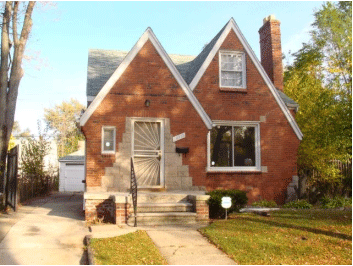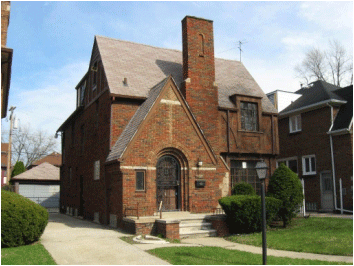By Tom Dyson | April 2009
|
I was on the phone with my friend Andrew. Andrew is 25 years old. He's been trying to get a business off the ground. Recently, his phones started ringing... and they're still ringing nonstop...
"A guy from Vegas called. He bought 35 houses with cash. Then a guy from Toronto called. He bought eight houses and a 186-unit apartment community. We just had another guy in from Toronto looking to buy 50 rental properties."
Someone else was speaking on a phone a few yards away. More phones rang in the background.
"We're getting calls from all over the world," said Andrew. "Tons of Americans are calling in. It's both. We've launched a website too... and we're already getting a lot of hits. We now have 22 agents working for us, full time."
My friend's city has the cheapest real estate in the world. But in the last six months, prices 'capitulated'. A price capitulation is what happens in the final throes of a bear market. It's the final death spasm that sends prices to ridiculously low levels for a moment before people regain their senses. "They call up and they want to buy houses for $500," Andrew says.
 Andrew showed me a house his firm had bought for $750. They bought this house from a bank a couple months ago. It's almost in rental condition. This house sold for $110,000 in 2005.
Andrew showed me a house his firm had bought for $750. They bought this house from a bank a couple months ago. It's almost in rental condition. This house sold for $110,000 in 2005. Then he showed me a house they paid $20,000 for two months ago. It's a four-bedroom, three-bath, 1,900-square-foot house with a full basement. The bank mortgaged this house for $188,000 in 2006. It's in a fantastic neighborhood of well-maintained lawns, where people take pride in where they live.
Then he showed me a house they paid $20,000 for two months ago. It's a four-bedroom, three-bath, 1,900-square-foot house with a full basement. The bank mortgaged this house for $188,000 in 2006. It's in a fantastic neighborhood of well-maintained lawns, where people take pride in where they live.Andrew is accumulating as much of this property as he can. Apartment buildings in wealthy neighborhoods are his favorite investments. His city is in a depression, and people don't want to own houses. So there's strong demand from people who want to rent. He says he can make returns of 15% to 20% a year in these properties...
Here's the thing: There's always a price that'll "clear" a market. When prices reach a certain level, buyers enter. This is one of the most important fundamental rules of speculation... and it never fails.
Andrew lives in Detroit. For years, there's been no life in Detroit's real estate market. This year, without explanation or fanfare, prices in Detroit property reached its clearance level. Now sentiment has turned around. The phones in Andrew's office have started ringing.
If the market for Detroit housing has found a bottom, maybe the property market in your hometown is close to making a bottom, too...
Good investing,
Tom
.
Look Out Below: Property Still In Sewer
A Look Back At Last Week's Important Events.
[[Actually, the week of the 20th: normxxx]]
By Robin Goldwyn Blumenthal, Ed., Barron's | April 2009
|
Worldwide sales volume simply fell off a cliff in the first three months, plunging to one-sixth its level of two years ago— and down 73% from 2008's first quarter— to a paltry $47 billion, according to Real Capital Analytics' quarterly Global Capital Trends report. In the U.S., there was barely $9 billion in commercial-property transactions, a sum that might have represented a single building a few short years ago.
"The commercial-sales market as we once knew it is basically nonexistent," says Dan Fasulo, a managing director at Real Capital and one of the authors of the report. The bid-ask spread is "as wide as it has been since the early '90s," he adds. In the first quarter, new reports of defaulted mortgages and failed commercial-property companies exceeded $55 billion, bringing the total of distressed assets to $153 billion.
The misery was widely distributed: Ireland saw a complete absence of sales, while 17 nations saw sales fall by 80% or more in the quarter versus 2008's first quarter. Price changes, meanwhile, varied from small gains to declines of 40% to 50% below those of a few years ago. Fasulo isn't too sanguine about prospects for improvement in the current quarter, although he notes that "we've seen a trickle of things picking up just over the past few weeks." He points to places like London and Paris, where markets have seen pricing beginning to correct.
To get the market back on track, says Fasulo, the distressed properties need to be cleared out, and the banks, some of which are lending, need to be more generous with their terms.
Now You Tell Us
Bank of America CEO Ken Lewis testified that he was 'pressured' by government officials into completing a deal to buy Merrill Lynch after Merrill's huge losses emerged, and was under the impression that then Treasury Secretary Henry Paulson and Fed Chairman Ben Bernanke 'didn't want him to disclose data about the deal to his investors'. The remarks appeared in a letter to Congress and U.S. securities regulators from New York Attorney General Andrew Cuomo, who is seeking a federal investigation. He said: "I was instructed that 'we do not want a public disclosure.'"
Under Stress
The Fed's methodology for conducting stress tests on the nation's 19 biggest banks is based on a more pessimistic economic forecast. The new criteria assume a 10.3% jobless rate at the end of 2010, a 3.3.% contraction in the U.S. economy in 2009, and just 0.5% growth in 2010. The bank said a need for additional capital wouldn't necessarily indicate a bank's insolvency. The IMF said the U.S. and European banks need $875 billion in equity by next year to recapitalize to pre-crisis levels.
Poor Performance
The Federal Reserve had 'unrealized losses' of $9.6 billion on some $74 billion of subprime mortgages and other toxic securities it took on after Bear Stearns and AIG collapsed. Losses on securities like home loans mean the U.S. taxpayer may have to reimburse the central bank through the TARP program.
The Numbers
The Government National Mortgage Association, known as Ginnie Mae, reported record issuance of mortgage-backed securities in March:
- $34.5 billion: MBS issued by Ginnie Mae in March
- $89.7 billion: total first-quarter issuance, versus $38.9 billion in the 2008 first quarter
- $34.1 billion: total single-family MBS issuance in March
- $334 million: total multi-family MBS issuance in March
Slight Reversal
The equity markets fell for the first time in seven weeks, though they finished close to their levels of a week ago. The Dow Jones Industrial Average ended at 8076.29 points, and the Standard & Poor's 500 Index closed at 866.23.
Shrinking Output
The global economy is expected to shrink this year for the first time since World War II, the IMF said. It projected a 1.3% drop in output.
Stuck In The Mud
Bank of America shares fell 24% after CEO Ken Lewis said credit "is bad and eventually will get worse before it… improves". The comments came after BofA posted a $4.2 billion profit, half of it due to 'accounting changes', but raised reserves for its other businesses. Morgan Stanley posted a loss, and slashed its dividend 81%.
No Public Placement
New York officials said they would ban lobbyists from soliciting business in public pension funds, amid a widening corruption investigation.
Mixed Bag
Ford posted a loss, but doesn't expect to see U.S. aid. General Motors will sell Pontiac. Chrysler moved closer to bankruptcy.
Odds 'N' Ends
New York Times posted a loss; it has no plans to go private.
Microsoft posted a drop in quarterly revenue, its first in 23 years.
ߧ
Normxxx
______________
The contents of any third-party letters/reports above do not necessarily reflect the opinions or viewpoint of normxxx. They are provided for informational/educational purposes only.
The content of any message or post by normxxx anywhere on this site is not to be construed as constituting market or investment advice. Such is intended for educational purposes only. Individuals should always consult with their own advisors for specific investment advice.
No comments:
Post a Comment